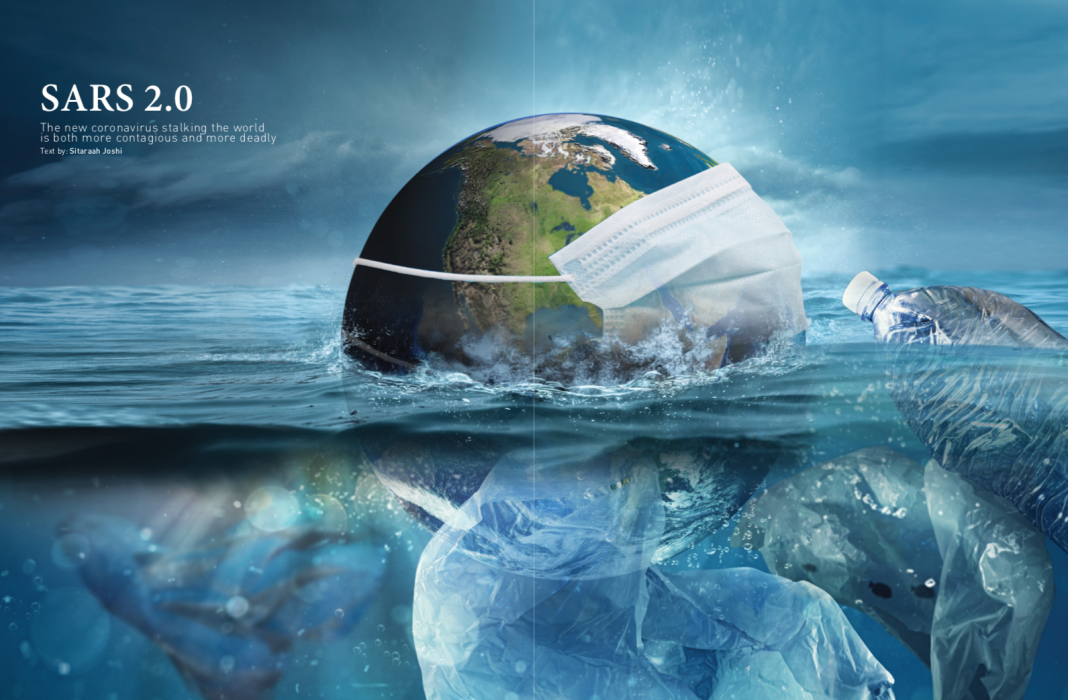Article extracted from Asian Diver Issue 02/2020 (155)
The new coronavirus stalking the world is both more contagious and more deadly
Text by Sitaarah Joshi
The end of 2019 saw the emergence of a new viral infection among workers at the Huanan Seafood Market in Wuhan, the capital city of Hubei province in China. Initially named 2019-CoV, the coronavirus was soon renamed SARS-CoV-2, distinguishing it from the closely related SARS-CoV-1 virus, which causes severe acute respiratory syndrome (SARS). The 2002–2004 SARS outbreak, which began in China’s Guangdong province, infected more than 8,000 people around the world, killing at least 774. By the end of January this year, the World Health Organisation (WHO) had designated the disease associated with SARS-CoV-2, called coronavirus 2019, or COVID-19, a “global health emergency”, and on March 11, the body declared it a pandemic.
Initially, cases were concentrated in Wuhan and Hubei province, with tens of thousands infected in a matter of weeks, but despite extreme measures to contain the virus, infections spread rapidly around the world.
Here are tips to keep the virus at bay:
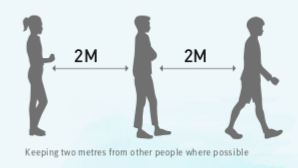
1. Avoid staying in closed spaces and air-conditioned environments for extended periods of time. Staying protected is good, but being cooped up inside without fresh air won’t help your immune system or your mental health. Exposure to the sun allows your skin to make vitamin D, which helps support healthy immune function. While there is evidence that viruses don’t like heat, sun exposure in itself doesn’t kill the coronavirus. Going for a walk or a run outside, while keeping a distance from others, will also benefit your overall health.
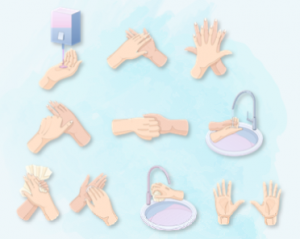
2. Wash your hands frequently with soap and water. Alternatively, use an alcohol-based rub like hand sanitiser. Travelling to school, work and other places means that we are in contact with various surfaces to which the virus can be transferred by an infected person. If you touch your face – which most people do every two to five minutes – you can get infected. The solution is regular hand washing. Soap is remarkably effective at removing viruses like the coronavirus. Soap dissolves the fat membrane that holds the virus together, and it literally falls apart, effectively deactivating it.
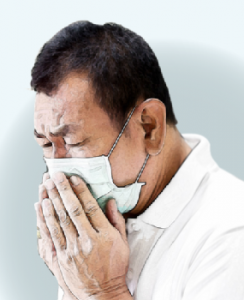
3. Practise respiratory hygiene. If you begin to experience mild symptoms, stay at home and avoid going out. If you have to leave your house, wear a mask to prevent the release of virus-containing droplets when you cough or sneeze. Wearing a mask is neither effective nor necessary if you are not ill; there are other people in need of them. Social distancing and frequent handwashing are more effective ways to protect yourself. If you do not have a mask or a tissue, cough or sneeze into your elbow or cover your mouth with your hands and wash your hands immediately afterwards.
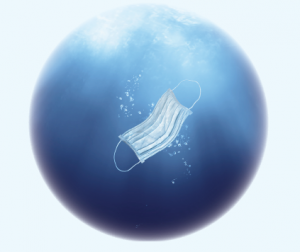
4. Dispose of your mask responsibly after use. Throw away your mask when it is not being used for a prolonged period of time, or when you are done with it. If your mask feels moist after hours of use, dispose of it. Be sure to dispose of masks responsibly. N95 masks are made using melt-blown fabric, which is created by melting down plastic material and blowing it out in strands. Thus, such masks aren’t biodegradable and can potentially add significantly to marine plastic pollution if not disposed of carefully.
Containing the spread of the coronavirus has proven to be extremely challenging. The exponential growth in cases first seen in China has been repeated across the globe, first in Asia, then in the Middle East and Europe, and finally in the Americas. In China, on January 23, less than two weeks after the first death from COVID-19 was reported, Wuhan went into lockdown in an effort to control the spread of the virus. All public transport was suspended, and residents were not permitted to leave the city. The WHO praised the move, calling it “unprecedented”, but the draconian measures have deemed controversial by other governments. Other countries have instead imposed incremental restrictions, but as numbers of cases and deaths have continued to rise sharply, many have been forced to impose similarly comprehensive lockdowns, putting an end to travel, banning large gatherings, forcing “non-essential” businesses to close, and more. Almost overnight, the measures have resulted in the near-total collapse of numerous industries, including tourism-related industries such as dive travel. It remains to be seen what will be left after the lockdowns are lifted and life returns to normal.


